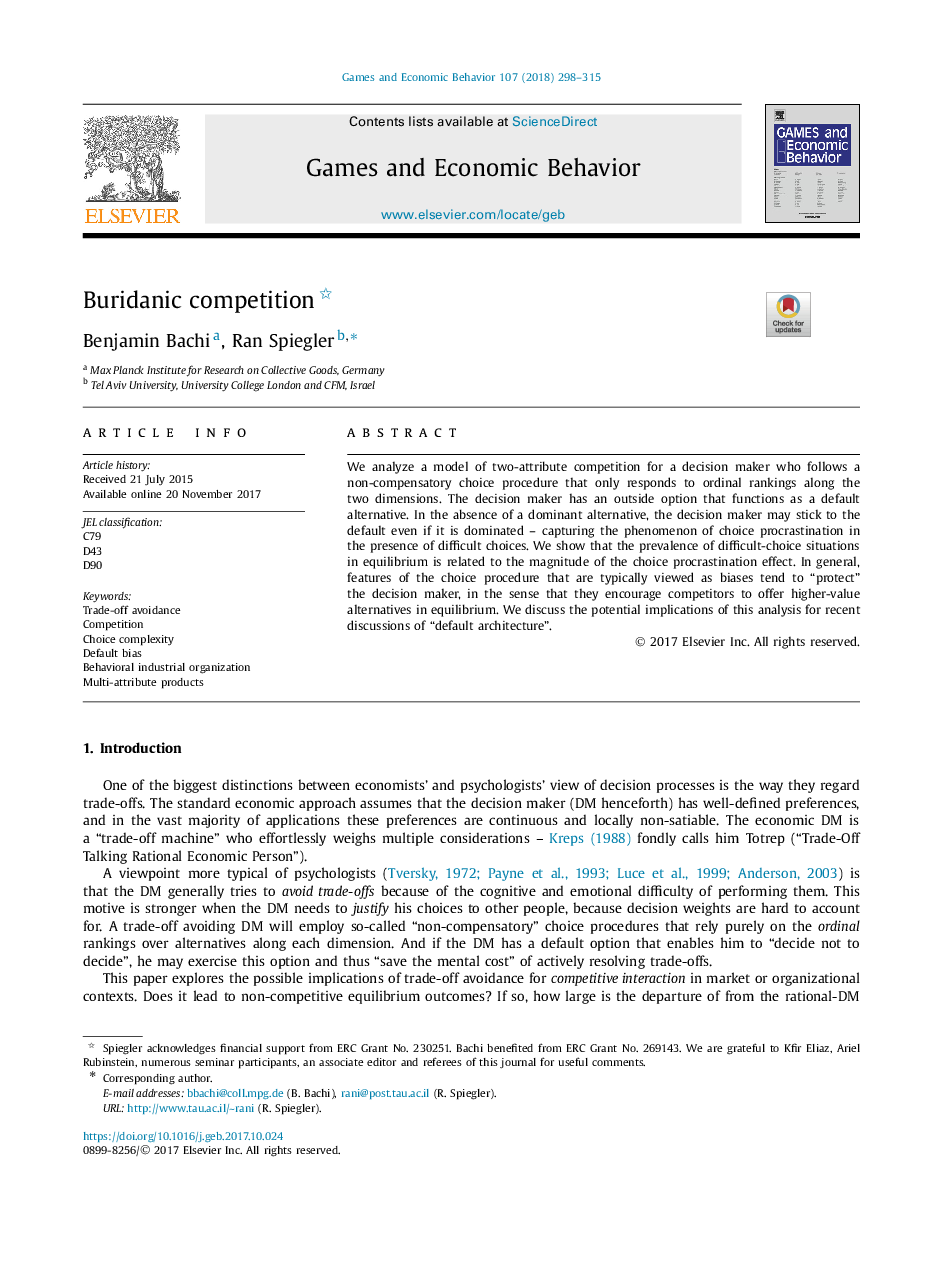| Article ID | Journal | Published Year | Pages | File Type |
|---|---|---|---|---|
| 7353041 | Games and Economic Behavior | 2018 | 18 Pages |
Abstract
We analyze a model of two-attribute competition for a decision maker who follows a non-compensatory choice procedure that only responds to ordinal rankings along the two dimensions. The decision maker has an outside option that functions as a default alternative. In the absence of a dominant alternative, the decision maker may stick to the default even if it is dominated - capturing the phenomenon of choice procrastination in the presence of difficult choices. We show that the prevalence of difficult-choice situations in equilibrium is related to the magnitude of the choice procrastination effect. In general, features of the choice procedure that are typically viewed as biases tend to “protect” the decision maker, in the sense that they encourage competitors to offer higher-value alternatives in equilibrium. We discuss the potential implications of this analysis for recent discussions of “default architecture”.
Related Topics
Social Sciences and Humanities
Economics, Econometrics and Finance
Economics and Econometrics
Authors
Benjamin Bachi, Ran Spiegler,
